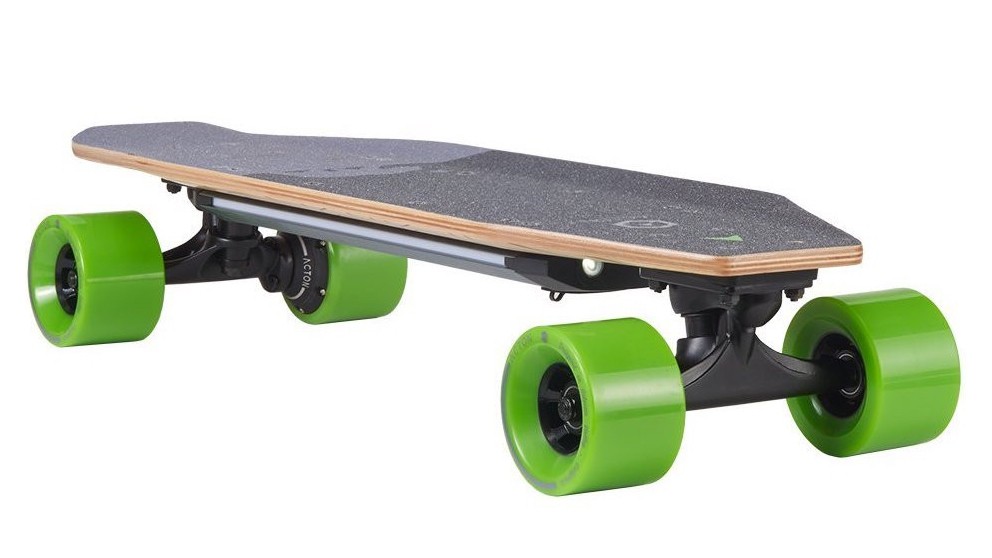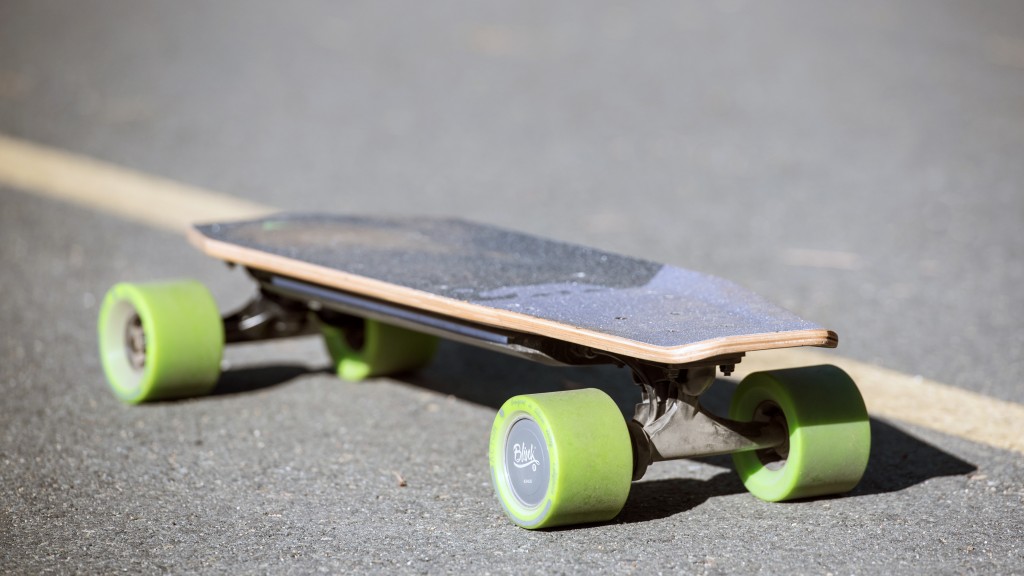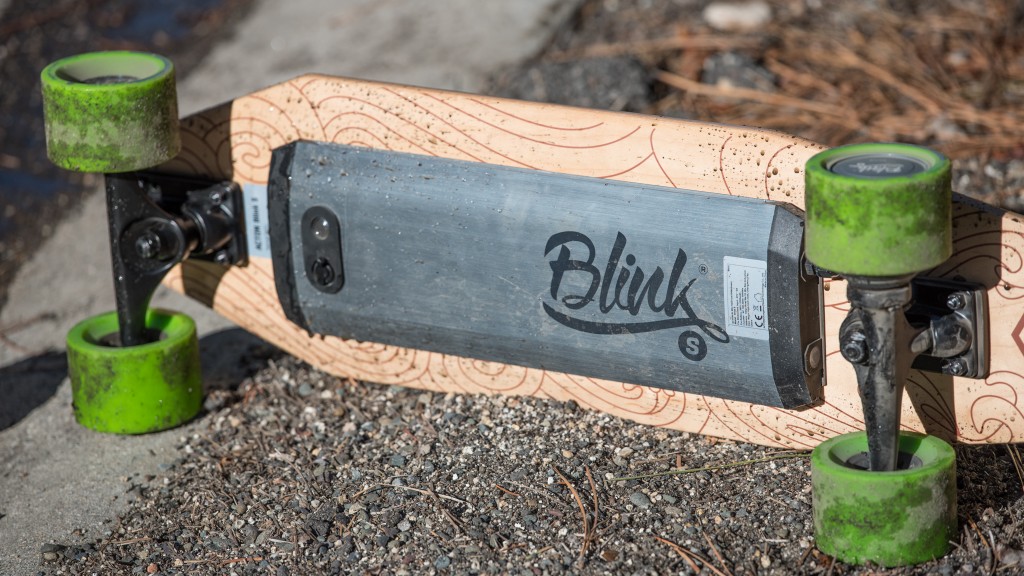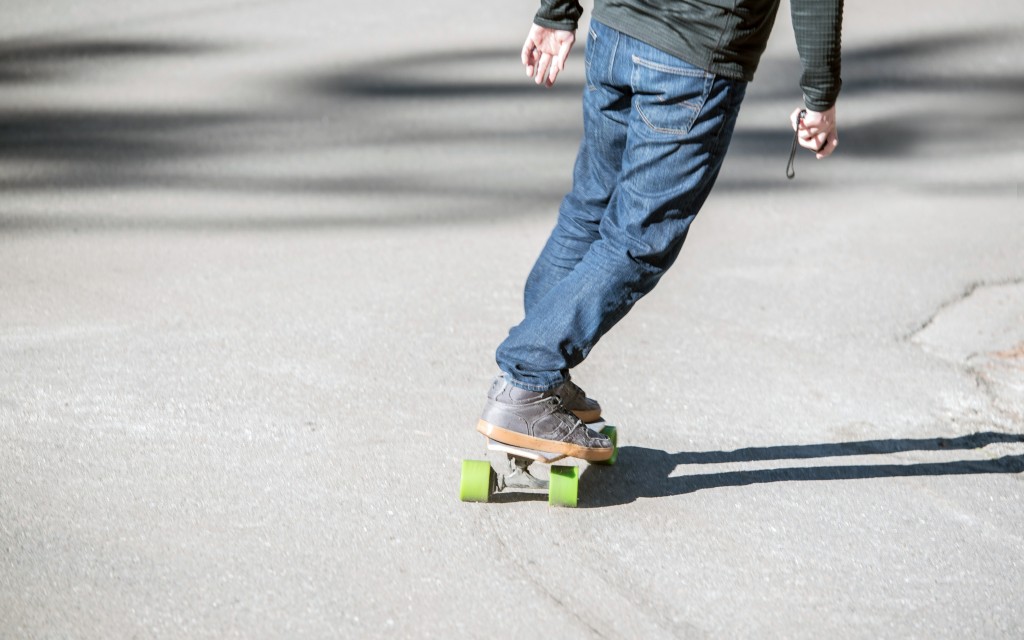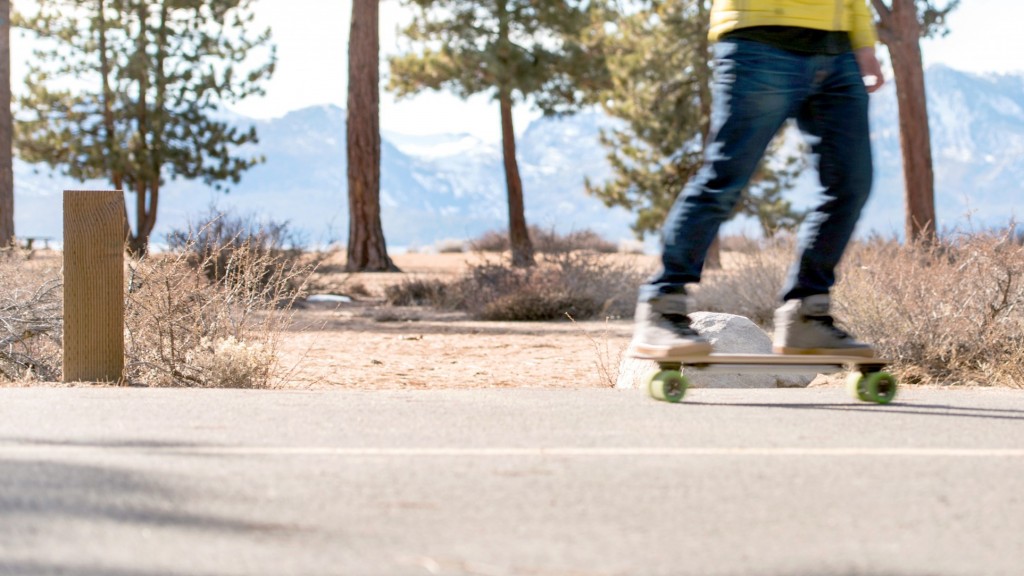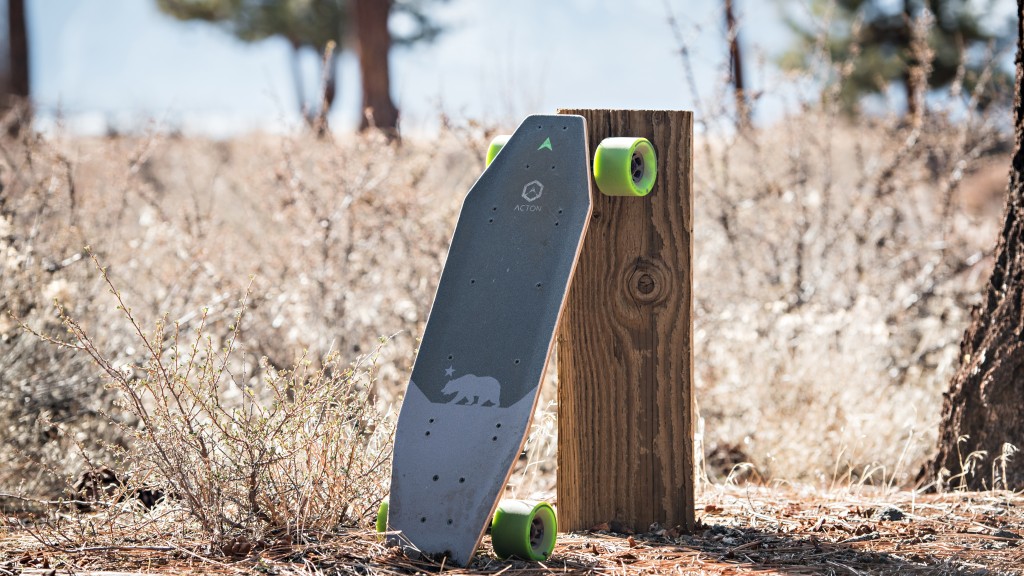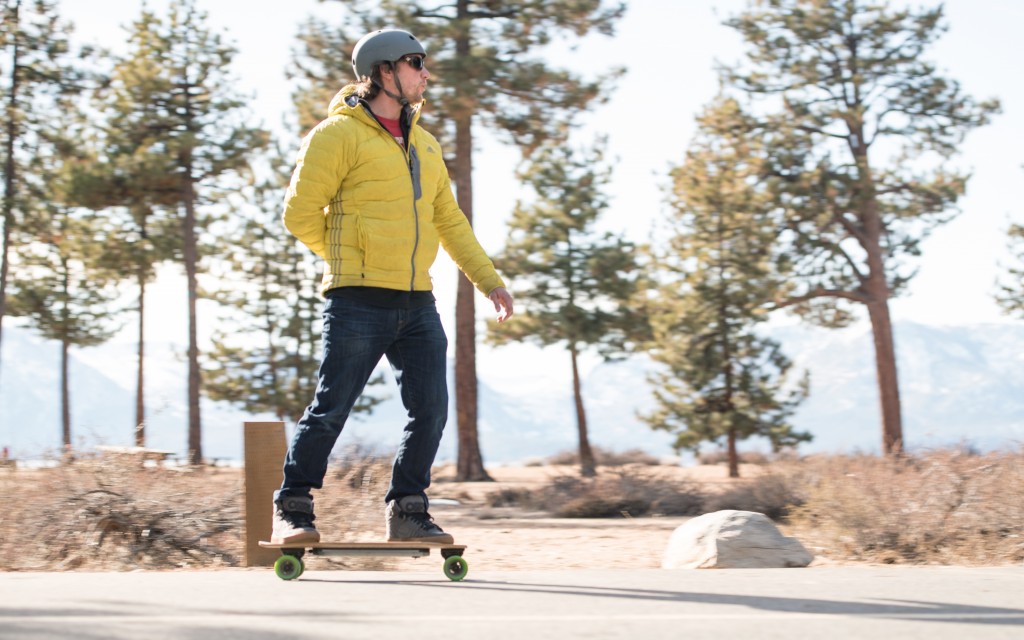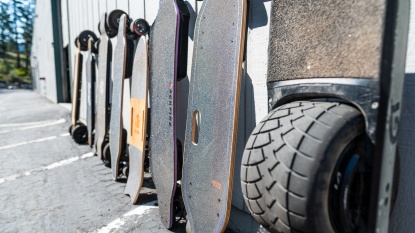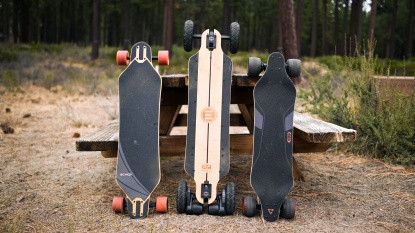Acton Blink S Review
Our Verdict
Our Analysis and Test Results
This board tied with the Pure Energy, with the Blink S doing a little better at climbing hills, but much worse when it came to braking. The Yuneec outperformed both of these boards and usually retails for less, making it a much more attractive option.
Performance Comparison
To determine which electric skateboard is really the best you can buy, we bought all of them, so you didn't have to. We tested all of these boards head-to-head, scoring and ranking their performance in tons of different tests, grading them on everything from their range to their ride.
Speed
For the first group of tests, worth 25%, we looked at how fast each board can go and how well it accelerates. The Blink S delivered a disappointing performance on the whole, earning a 4 out of 10.
This board achieved an average top speed of 15.7 mph — a middle-of-the-road performance.
However, this board is definitely lacking in terms of acceleration and is much slower off the line than the other boards, bringing its score down considerably.
Range
Next, we evaluated the battery for each board, looking at how far you could actually travel and how long it took to charge. The Blink S delivered a mediocre performance, earning a 5 out of 10 for its uninspiring efforts. This accounts for 20% of the overall score.
This tiny board didn't travel particularly far in our range test, only lasting for 6.6 miles before kicking the bucket. However, its performance rapidly degraded in the last mile, slowing considerably before finally ceasing to function. This was a much shorter distance than the top models in the group.
However, this board does charge decently fast, comparing quite favorably with the other boards we reviewed.
Unfortunately, it didn't quite meet the manufacturer's claim of being able to fully charge in 45-60 minutes, taking significantly longer in our tests.
Ride
For our next group of test, we assessed how it felt when riding each board, scoring each product on how comfortable it is to ride and how it handled rough terrain, as well as how much we were drawn to picking it for quick trips around town. The Blink S again delivered an unimpressive performance, earning a 4 out of 10 in this metric, worth 20% of the score.
This board is much more comfortable to ride than the original, but it is still a tiny board, meaning it isn't the most fun to ride for long periods of time. It also feels a little on the stiff side due to its short length.
This board doesn't do terribly well with uneven terrain, vibrating on rough roads. It is also a very jarring experience when you ride over a crack, do the smaller wheels on this model. These traits combined for a relatively substandard ride, meaning we just weren't that drawn to this board.
Hills
Next, we looked at the hill climbing abilities of each board, responsible for 15% of the total score. Unfortunately, the Acton was stymied by even the slightest hill, earning it a 3 out of 10.
This board barely made it up a 5% grade, far underperforming the manufacturer's claim of 15%.
Build
To score this metric, accounting for 10% of the total score, we looked at the weight and responsiveness of each board, as well as whether or not it had regenerative braking. We also scored the ergonomics of the remote and evaluated how helpful the customer support team is. The Blink S did quite well, receiving a 6 out of 10 for its above average results.
This board started off with a strong showing, being one of the lightest boards of the entire group.
The remote is quite nice to hold, fitting comfortably in your hand with a non-slip rubber grip. However, this board isn't terribly responsive and there is a noticeable lag for the motors to respond, especially when starting from a dead stop. This board does have regenerative braking and decent customer support.
Braking
For the last metric, making up for the remaining 10% of the score, we looked at how well each board can stop. The Blink S didn't impress, earning a 2 out of 10. For the first test, we looked at how quickly the board can stop on flat ground from a cruising speed. The Blink S did incredibly poorly, taking over 70' to stop and comparing very unfavorably with the rest of the group.
For the second test, we judged how well we could regulate our speed when going down a decently steep hill. The Blink S again did poorly, leaving us feeling that foot braking would have been vastly more effective.
Value
While the Blink S retails at a relatively reasonable price, it isn't an amazing value buy. There are other models that perform better and sell for about a hundred bucks less, like the E-Go 2 from Yuneec.
Conclusion
All in all, we weren't huge fans of the Blink S. It's a definite improvement from its predecessor, but still has a long way to go before we would recommend it.


